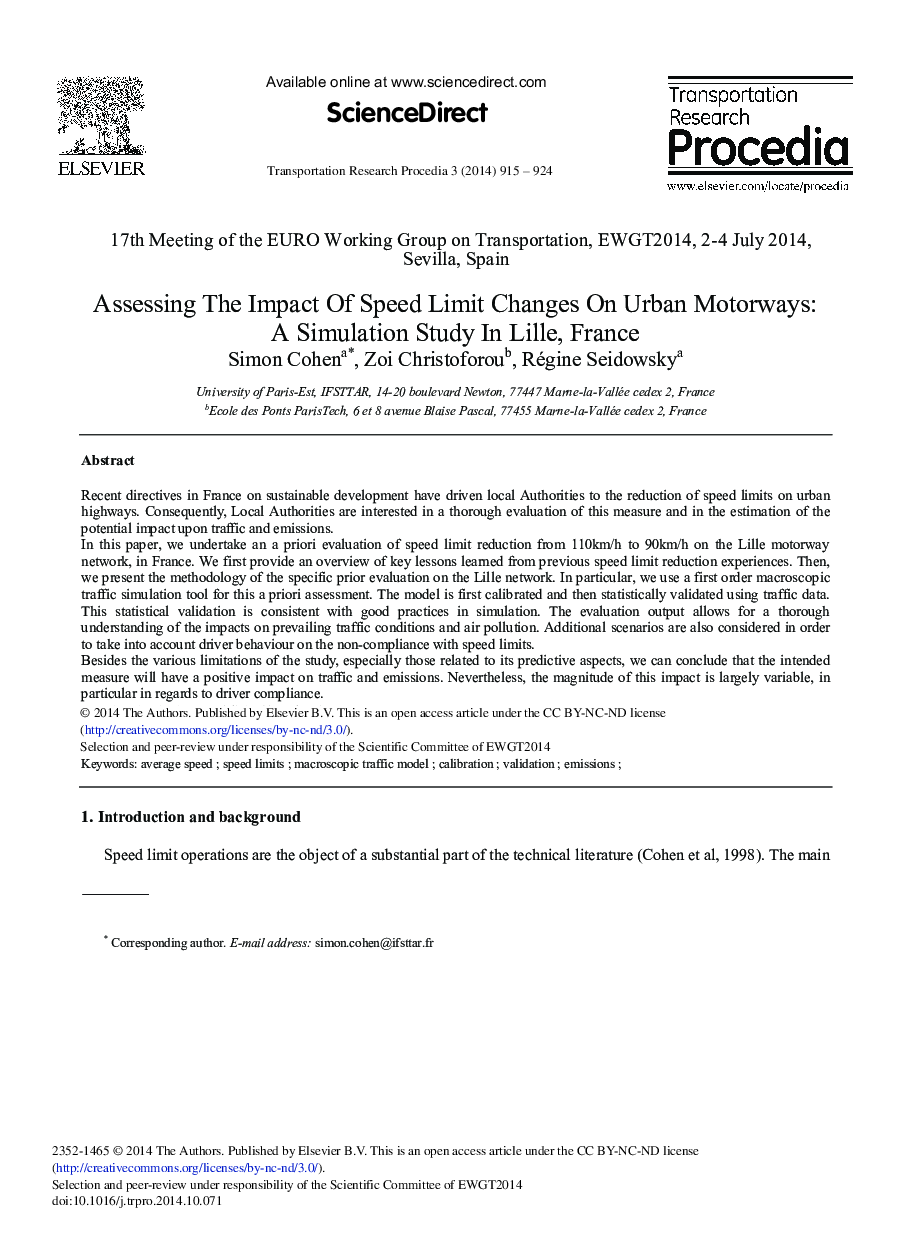| Article ID | Journal | Published Year | Pages | File Type |
|---|---|---|---|---|
| 1106472 | Transportation Research Procedia | 2014 | 10 Pages |
Recent directives in France on sustainable development have driven local Authorities to the reduction of speed limits on urban highways. Consequently, Local Authorities are interested in a thorough evaluation of this measure and in the estimation of the potential impact upon traffic and emissions.In this paper, we undertake an a priori evaluation of speed limit reduction from 110 km/h to 90 km/h on the Lille motorway network, in France. We first provide an overview of key lessons learned from previous speed limit reduction experiences. Then, we present the methodology of the specific prior evaluation on the Lille network. In particular, we use a first order macroscopic traffic simulation tool for this a priori assessment. The model is first calibrated and then statistically validated using traffic data. This statistical validation is consistent with good practices in simulation. The evaluation output allows for a thorough understanding of the impacts on prevailing traffic conditions and air pollution. Additional scenarios are also considered in order to take into account driver behaviour on the non-compliance with speed limits.Besides the various limitations of the study, especially those related to its predictive aspects, we can conclude that the intended measure will have a positive impact on traffic and emissions. Nevertheless, the magnitude of this impact is largely variable, in particular in regards to driver compliance.
